|
Tuesday, 20 September
|
|
Plenary
|

|
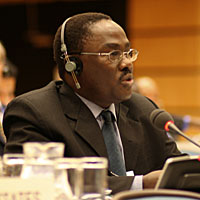
Nigeria welcomed SAICM's focus on the protection of the environment and
human health.
|
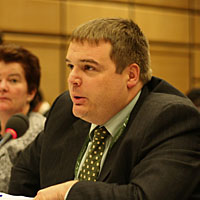
On behalf of the EU, Colin Church, UK, opposed deleting references to
precaution in the section on risk reduction.
|
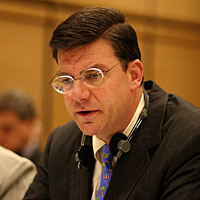
David van Hoogstraten, United States, said that the introductory paragraph
should recognize existing international mechanisms, and proposed replacing
language on implementation with the phrase "achieving goals is voluntary."
|
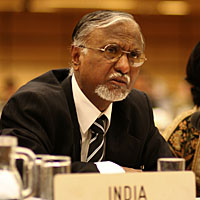
Prodipto Ghosh of India suggested considering the environmental impacts
of all chemicals, and asked to delete the specific list of stakeholders.
|

Desiree Narvaez, the Philippines, asked to retain the multi-stakeholder
and multi-sectoral approach, to be followed by a detailed list of
stakeholders.
|

Raphael Azeredo, Brazil, facilitated a small drafting group to revise
the introductory text of the overarching policy strategy.
|
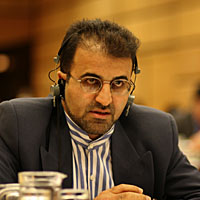
S. Ali. M. Mousavi, Islamic Republic of Iran, stressed the importance of
technology transfer to developing countries and countries with economies
in transition.
|

Tarek Eid El Ruby, Egypt, said that the SAICM, as a brand new forum for
action, requires adequate and sufficient resources to ensure its
implementation.
|

Andrea Flava of the International Chamber of Commerce called for greater
rigor in the scope, and asked not to introduce indirect controls that
would inhibit the production of certain products.
|
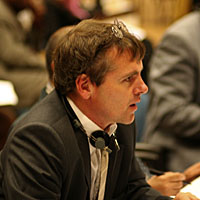
Henrik Eriksen, Norway, introduced a proposal drafted with Switzerland to
guide policy on substances that pose unmanageable risks.
|
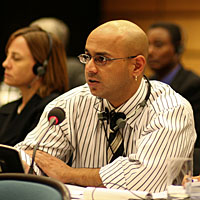
Paivan Baichoo, International Labour Organization, said that the
governing bodies of the relevant international organizations should
propose prioritization of the SAICM objectives.
|

George Krhoda, Kenya, recognized the role of the media in disseminating
information about the risks of chemicals.
|
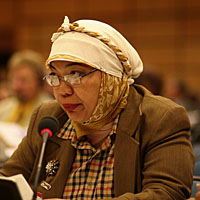
Rosalind Salindeho, Indonesia, called for additional resources to fund
the SAICM process.
|
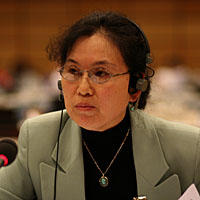
Yu Fei, China, made it clear that without financial support, developing
countries cannot prioritize chemicals management, and although SAICM is
voluntary, governments should honor commitments and promises made.
|
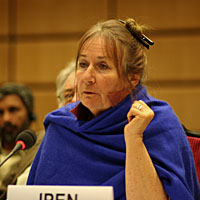
Speaking for IPEN, Mariann Lloyd-Smith proposed adding neurotoxicants and
immunotoxicants to the list of substances that pose unmanageable risks.
|
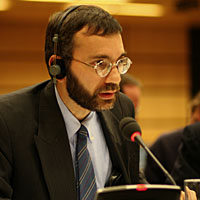
David Brown, United States, tabled its proposal on the overarching policy
strategy, introducing a number of controversial deletions and additions.
|
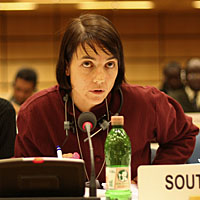
Judy Beaumont, South Africa, noted that information on risks of certain
products should not be covered by the confidentiality provision.
|
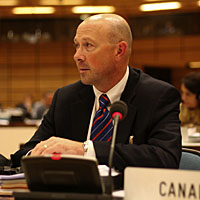
John Arsenau, Canada, suggested balancing confidentiality and access to
information.
|
|
Contact Groups
|
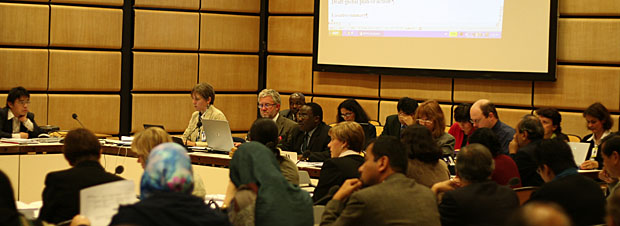
The contact group on the global plan of action, chaired by Jamidu
Katima, Tanzania, discussed the nature of the document, agreed to a compromise
text referring to voluntary activities, and accepted a proposal linking
the overarching policy strategy and the global plan of action.
|
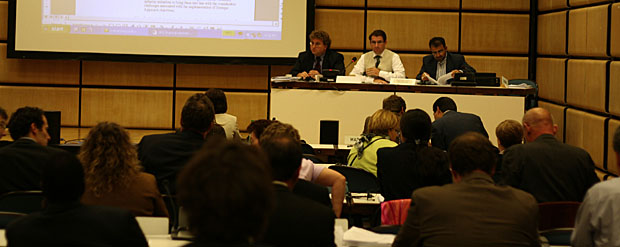
Delegations discussed industry involvement, internalization of costs,
information exchange and voluntary participation in the contact group on
financial considerations.
|
|
Around PrepCom-3
|
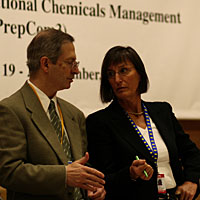
John Buccini, Director of UNEP Chemicals, conferred with PrepCom-3 President
Viveka Bohn before the day's session.
|
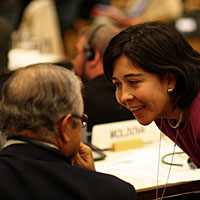
ENB's Paula Barrios asked Mexico's Daniel Chacón Anaya a question.
|
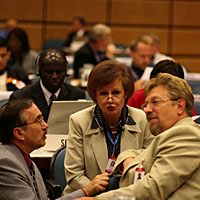
Delegates conferred during a break in proceedings.
|

Delegates from intergovernmental organizations discussed documentation
during plenary.
|

